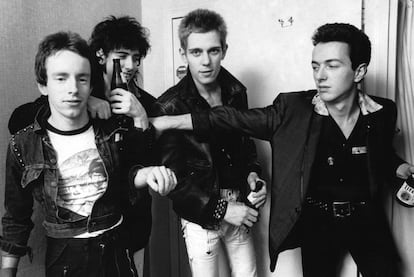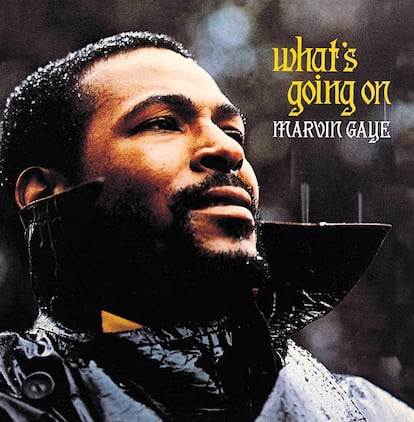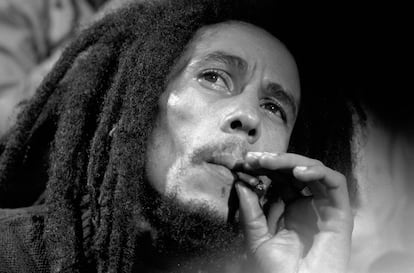Why the ‘70s was the best decade for popular music
It saw the birth of punk, new wave, hip hop, funk and electronic music, as well as the rise of legends like David Bowie, Lou Reed, Iggy Pop, Neil Young, Patti Smith, Bruce Springsteen, Tom Waits, Elton John and Tom Petty

Bar-stool debates about music often go nowhere, but they can sometimes help in making sense of things. I was reminded about one such frequent debate when I heard a recent episode of Sofá Sonoro, the fantastic streaming program directed by Alfonso Cardenal for the Cadena Ser radio network in Spain. This particular episode was about 1970s rock music, and it reminded me of something I have been thinking for a long time: that the 1970s were the best decade for popular music. But before you attack, let me defend that statement.
Music historians often enshrine the 1960s as the best decade for popular music, because it’s when rock became a countercultural movement led by giants like Bob Dylan, The Beatles and The Rolling Stones. It was also the decade of soul music, with the emergence of the eminent Stax and Motown record labels. And it also saw the genesis of major music festivals like the legendary Woodstock. Many other political ingredients and social struggles also fueled the 1960s, but it’s not the only transcendental decade of music: the 1950s saw Elvis Presley light the fuse for the rock & roll explosion. Purists love the 1950s because it was the beginning of so many things and was infused with a captivating innocence. Still others argue for the 1980s, with its post-punk and the birth of indie, so decisive for many and which has created its own musical myths. The generation that came of age in the 1990s defends that decade for emotional reasons: they lived through the charged moodiness of grunge, Brit pop and the most brilliant indie music.
These days, the news is constantly reminding us that the 20th century is fading further into the distance as its cultural luminaries pass away. Looking back is a way of putting the past in order. The 1970s holds many keys to understanding the value of popular music, but it’s also wonderful emotional territory to explore. My declaration that this was the best decade for popular music is more about personal introspection than a demonstrable judgment. However, I will offer some arguments to support this thesis.
I have always viewed ‘70s as the era in which rock, as an artistic and cultural movement, became self-aware of its own virtues and flaws. The counterculture seemed to lose steam after the breakup of The Beatles and the “Summer of Love.” The turn of the decade showed that the ‘60s story had become a commodity, another thing to be consumed by a commercial culture. On the other hand, 1970s was a period that enabled the passionate Seattle sound of The Stooges, MC5 and punk rock to spread throughout the US and the UK. For that reason alone, – the rage and nihilism that shook the core of the music industry and popular culture – this decade would rise above any other. At the very least, there was far more awareness of failure and a much greater need to break everything. The 1970s were the years of The Clash, Sex Pistols and Ramones, who along with The Stooges and MC5 embodied an entire philosophical treatise on rock.

Alongside the punk fury, a new wave in pop rock swelled up and gave us street rhythms from the iconic CBGB nightclub by artists like Patti Smith, Blondie, Television, Talking Heads, Johnny Thunders, The Dictators and Mink Deville. The incredible British new wave did not lag behind, and produced a long list of stars like Elvis Costello, Nick Lowe, The Police, Echo and the Bunnymen and Joy Division. At the same time, pub rock was born in the UK with Dr. Feelgood at the forefront, along with Brinsley Schwarz, Ian Dury and Graham Parker.
Black music expanded from soul into funk with the raw sound of James Brown, and vibrant, new names like Funkadelic and Parliament. Soul music also evolved in the 1970s. For all of its success in the 1960s, Motown was never more transcendental than in the ‘70s with the unrivaled Stevie Wonder, Marvin Gaye’s What’s Going On, and many others that followed. The 1970s saw the birth of hip hop in the Bronx (New York), a countercultural African American earthquake that blossomed in the 1980s, and the New York salsa boom that marked a before-and-after for Latino music around the world.

The same decade would bring progressive rock and hard rock, two new musical genres derived from the great trunk of rock. That is to say, it is the decade of Led Zeppelin, Black Sabbath or AC/DC. And, if we are to mention mammoth stadium bands, we must add Queen or The Eagles. It is also the decade of disco music, so important for the development of discos that continue to this day. But, without a doubt, just as the seventies are the decade of punk and hip hop, it is the decade of electronic music. This musical movement with great social roots will change the entire sound scene from the birth of popular electronic music, exemplified by Kraftwerk, another essential group in the history of music and coming out of this decade. And, just on the other side of this shore, in the always conservative country there is another small earthquake with the consolidation of the outlaw: Willie Nelson, Johnny Cash, Kris Kristofferson, Waylon Jennings... and out there! they were also on their own beat but glorifying country-folk Gram Parsons, Linda Ronstadt, Emmylou Harris and Townes Van Zandt!

If all that isn’t enough to convince you about the 1970s, consider two giants of the decade: David Bowie and Lou Reed. And there are more, many more, like Bob Marley who introduced the world to reggae. Now I’ll give you some of my personal favorites from this decade: Neil Young, Tom Waits, Bruce Springsteen, Tom Petty, Patti Smith and Jackson Browne. And maybe also the brilliant Van Morrison. And how about great musical dramatists like Elton John and Billy Joel?
While some music legends clearly broke out in the 1960s, many of their best albums were made in the 1970s. The Rolling Stones produced Sticky Fingers and Exile on Main St. Likewise, Bob Dylan produced Basement Tapes (released in 1975), Rolling Thunder Revue, and his more intimate albums like Blood on the Tracks, Desire and Street Legal. Oh, and don’t forget the quasi-religious Slow Train Coming. Yes, I buy it. Just as I buy that (hold on to your hats) the 1970s were the decade of a unique, huge Elvis Presley. I will defend to the death the Elvis of the ‘70s, rising up in his great suffering and self-destructing in a perfect metaphor of rock & roll. And it’s the decade in which he dies, which makes it unique.
Tu suscripción se está usando en otro dispositivo
¿Quieres añadir otro usuario a tu suscripción?
Si continúas leyendo en este dispositivo, no se podrá leer en el otro.
FlechaTu suscripción se está usando en otro dispositivo y solo puedes acceder a EL PAÍS desde un dispositivo a la vez.
Si quieres compartir tu cuenta, cambia tu suscripción a la modalidad Premium, así podrás añadir otro usuario. Cada uno accederá con su propia cuenta de email, lo que os permitirá personalizar vuestra experiencia en EL PAÍS.
¿Tienes una suscripción de empresa? Accede aquí para contratar más cuentas.
En el caso de no saber quién está usando tu cuenta, te recomendamos cambiar tu contraseña aquí.
Si decides continuar compartiendo tu cuenta, este mensaje se mostrará en tu dispositivo y en el de la otra persona que está usando tu cuenta de forma indefinida, afectando a tu experiencia de lectura. Puedes consultar aquí los términos y condiciones de la suscripción digital.
Archived In
- David Bowie
- Lou Reed
- Iggy Pop
- Neil Young
- Patti Smith
- Bruce Springsteen
- Tom Waits
- Elton John
- Tom Petty & The Heartbreakers
- The Beatles
- Bob Dylan
- Bob Marley
- The Rolling Stones
- Elvis Presley
- The Clash
- Sex Pistols
- The Ramones
- Blondie
- Talking Heads
- Johnny Thunders
- The Police
- Elvis Costello
- Nick Lowe
- James Brown
- Stevie Wonder
- Marvin Gaye
- Led Zeppelin
- Black Sabbath
- Ac/Dc
- The Eagles
- Queen
- Johnny Cash
- Willie Nelson
- Van Morrison
- Billy Joel









































